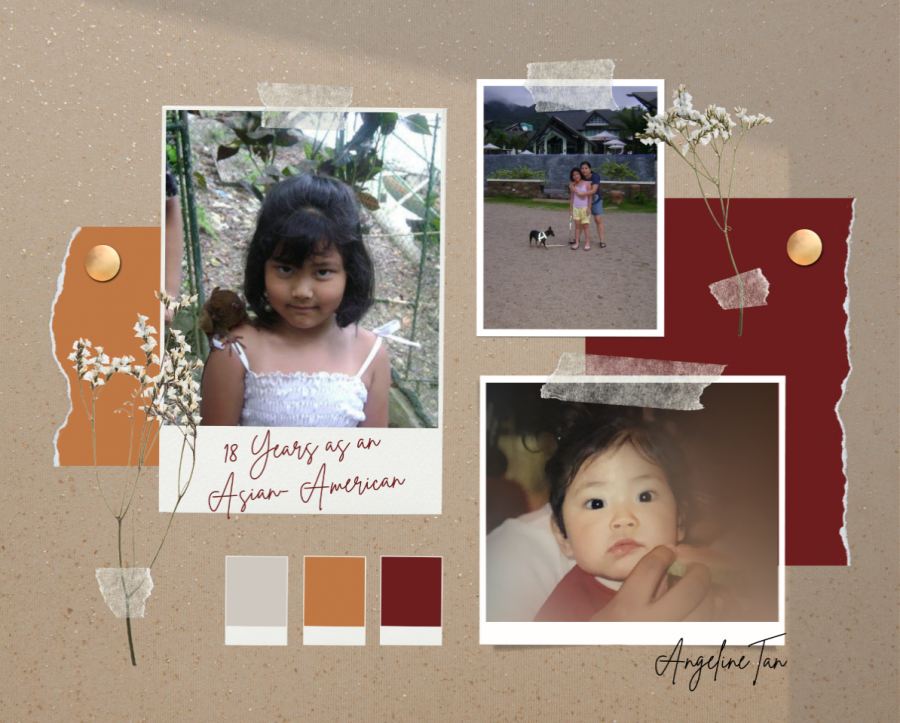18 Years as an Asian-American
May 14, 2021
“What’s that on your plate?” A girl from my class had asked me during our lunch break as we huddled in a cafeteria that housed students of all ages.
“It’s something my mom made for me; do you want to try it?” I questioned in response, lifting up the neatly shaped roll of Lumpia my mom had made for me the day prior.
With a look of hesitation, the girl plucked the roll out of my hands as if it were a mutated experiment come to life. She gave it a whiff, tasting it carefully before her face distorted in response. She took the napkin my mother had packed for me, spitting out the food inside before shoving the rest of eggroll inside and tossing it inside the garbage can that a student rolled by.
“Your food is disgusting,” she told me just as she had got up to leave the lunchroom.
School soon finished up, and with everyone packed and ready to go home, I went to my mom with only one request on the tip of my tongue.
“Could you stop packing me Filipino food?” I asked her. To this day, she continues to fulfill my request.
Growing up as an Asian-American, I have had my fair share of side glances and subtle comments towards my way of living throughout my life. My parents had immigrated to America before I was born, hoping for a better life outside of their small home in the Philippines. My mother was the first to move, accompanied by my grandfather who spent most of his time out in the garden while my mother nursed my sister. My father soon immigrated alongside her, and together they began their life in America in pursuit of more than they were given.
I was raised in a rather strict household, as I was expected to keep my grades up in the early years of my life and was disciplined if I was caught slipping up. Although my parents never physically harmed me, the disappointment that came whenever I failed was all I needed to learn my lesson.
I am known by my friends as an “Americanized Filipino”, as I spent my entire life in America and only came to know the Philippines through occasionally travelling back home whenever we had the opportunity. My connections to my Filipino roots were bleak, as I could only learn what it was like through the news my parents watched. They told stories of a place that was completely different from my own, of a society that visibly showed the divide amongst the rich and the poor. I could only recall what I learned from my television screen, but even then, my attachment was scarce.
I enrolled in a K-8 school by the time I entered Kindergarten, skipping preschool years prior as my parents chose to teach me at home. From the moment school had begun, I adapted my way of living to suit those around me. The ethnic food my mother would pack turned into small sandwiches stuffed with grocery store ham and square-shaped cheese. The rice became solid bread, all in an attempt to fit in with what I had observed from my peers.
I was not unfamiliar with the typical Asian stereotypes as I grew up learning to join the cesspool rather than catch myself drowning in it. Jokes such as being the smartest kid in school to eating cats and dogs was something I became normalized to, and I continuously made an effort to avoid fitting into those stereotypes. With every success I gained in school, however, I began to sink deeper and deeper into standard that people had crafted for me. To them, I was only smart because I was Asian. It was as if the pigment of my skin triumphed over the personal efforts I made to honor what my parents expected of me.
I wanted to be strong for them, but even then, I felt my struggles only continued to increase.
Following the recent attacks on older Asian-Americans, I grew wary of the environment that my parents surrounded themselves in. Even now, I tell my mom to be safe each time she departs for work. I wish I could do more than just recite the same words to her every day, but even then, I know my push alone would not stop the prejudice that my people face just from making root in American soil.
The ever-growing push for change becomes more difficult with each passing day, but that does not mean it is entirely impossible.
Although I was weary of the presence of discrimination from an early age, the problems revolving around racism and prejudice against people of color only continue to grow. From the continuously circulating stereotypes, to the controversy over reclaiming racial slurs, it almost seems as though the surge for equity and representation fades dimmer and dimmer as time goes on. Despite this, however, that does not mean we need to remain silent on what issues need to be addressed. I believe that death and violence should not have to happen for people’s voices to finally be heard.

